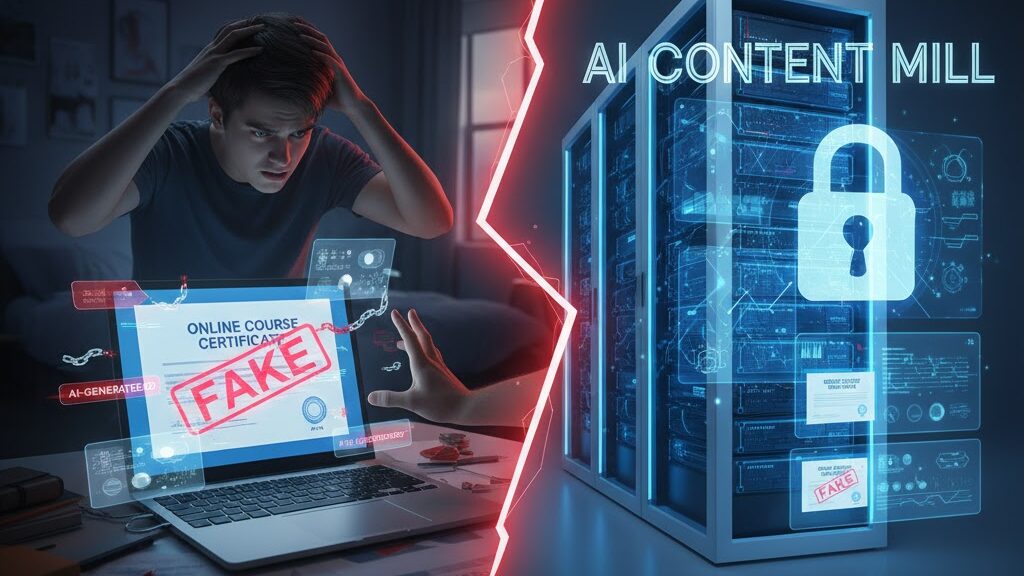
Source
The Conversation
Summary
Mohammed Estaiteyeh argues that generative AI has exposed fundamental weaknesses in asynchronous online learning, where instructors cannot observe students’ thinking or verify authorship. Traditional assessments—discussion boards, reflective posts, essays, and multimedia assignments—are now easily replaced or augmented by AI tools capable of producing personalised, citation-matched work indistinguishable from human output. Detection tools and remote proctoring offer little protection and raise serious equity and ethical issues. Estaiteyeh warns that without systemic redesign, institutions risk issuing credentials that no longer guarantee genuine learning. He advocates integrating oral exams, experiential learning with external verification, and programme-level redesign to maintain authenticity and uphold academic integrity in the AI era.
Key Points
- Asynchronous online courses face the highest risk of undetectable AI substitution.
- Discussion boards, reflections, essays, and even citations can be convincingly AI-generated.
- AI detectors and remote proctoring are unreliable, inequitable, and ethically problematic.
- Oral exams and experiential assessments offer partial safeguards but require major redesign.
- Institutions must invest in structural change or risk turning asynchronous programmes into “credential mills.”
Keywords
URL
https://theconversation.com/how-ai-is-challenging-the-credibility-of-some-online-courses-264851
Summary generated by ChatGPT 5

